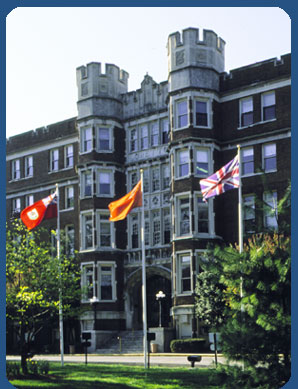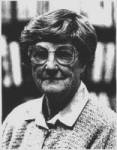| Women's Intellectual Contributions to the Study of Mind and Society Students, as part of an advanced seminar, examined and wrote about the lives of these women,
their intellectual contributions, and the unique impact and special problems that being female had
on their careers. |  |
| For information about referencing this paper - Click Here |
Eleanor Maccoby and Gender Differentiation
|  |
Eleanor Maccoby was born in 1917 in Tacoma, Washington (An Introduction). According to An Introduction to Life Span Development, Maccoby attended Reed College in 1934, but after her first year she had to drop out because of financial difficulties. She later returned to Reed and then transferred to the University of Washington in Seattle.
Maccoby obtained her BS from the University of Washington and her Master's degree from the University of Michigan in 1949 (Eleanor Maccoby). Maccoby received her Ph.D. from the University of Michigan in experimental psychology (Eleanor Maccoby). Her study focused on the socialization of children, developmental change in personality and behavior, relationships of couples after divorce, and parent-child interactions (Eleanor Maccoby).
Maccoby worked with B.F. Skinner for a brief time until accepting a position at Harvard administering research on child rearing practices (An Introduction). According to An Introduction to Life Span Development, she also conducted some of the first studies on the impact of television on the lives of families, and more specifically, children. Maccoby worked at Harvard for some time until she felt that her gender prevented her from advancing there. She then transferred to Stanford and entered as an associate professor.
In 1974, Maccoby published her most influential book The Psychology of Sex Differences, which was based on a review of over 1600 studies of gender differences (An Introduction).
Maccoby believed that a parent's influence on a child's socialization into a particular gender role and sex-typed preferences was not the primary influence (Carpenter, 2000). According to Carpenter, Maccoby stressed the biological influences of gender divergences.
Maccoby received many awards and honors, including the Gores Award for Excellence in Teaching in 1981, the Gordon Stanley Hall Award in 1982, the honor of Distinguishing Science Contribution to Child Development in 1987, and a Lifetime Achievement Award from the American Psychology foundation in 1996 (Eleanor Maccoby).
Maccoby was also involved in many organizations, societies, and associations, including working as President of the Western Psychology Association from 1974 to 1975, and also working as the President of the Governing Council for the Society for Research in Child Development from 1981 to 1983 (Eleanor Maccoby).
References
Back to Women's Page

